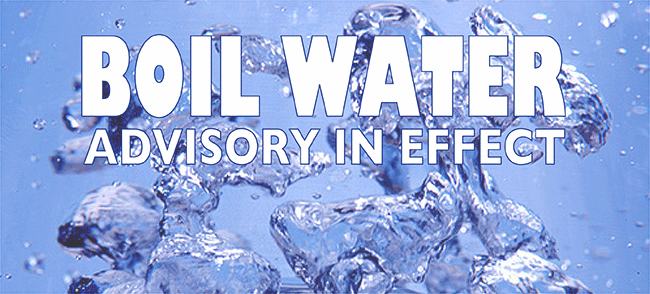
October 23, 2018. 10 a.m. update: The Travis County emergency management coordinator says the boil-water order in Austin could last 10 to 14 days as the city’s water treatment system tries to restore normal output.
Chief Emergency Management Coordinator Eric Carter briefed Travis County commissioners Tuesday morning on Austin’s water situation, which he said is affecting at least 888,000 people in the city.
“Right now we’re still pushing abut 27,000 cubic feet per second of water down the Colorado River as the LCRA attempts to lower Lake Travis. So it’s going to be a while before it gets low and the lake … begins to settle down,” he said.
Floodwaters have inundated the Highland Lakes with mud and silt, slowing down the water treatment process and limiting the amount of clean water available to customers. On Monday, Austin Water urged its customers to boil tap water before consuming it.
The alert triggered a run on bottled water at Austin-area stores, and shipments of water came in from San Antonio to help stabilize the system.
Travis County Judge Sarah Eckhardt said if you can boil water, you should opt to do so instead of buying tons of bottled water, which should be reserved for vulnerable populations.
We’re a community of sharing, not hoarding,” she said.
Austin Public Health is providing education to restaurants and other vendors on how to continue operations safely. Information is available on their website, Facebook and Twitter or by calling Austin Environmental Health at 512-978-0300.
Anyone else with questions about the boil-water order can call 311 or visit the Travis County emergency information website.
Carter said the area will see more rain on Wednesday.
“Hopefully it won’t result in too much of a problem in our area, but to the west, the grounds are really saturated. Any spike in rain could cause a problem,” he said.
October 22, 2018: The City of Austin’s water utility has issued a city-wide boil water notice, as it struggles with the impact of debris from flooding on its water treatment capabilities.
“The high level of debris, silt and mud requires extended filtration that slows the process of getting treated water into the system,” Austin Water said in a press release. “To provide necessary water pressure for fire protection, plants must distribute water at treatment levels not typical of the utility’s high standards for consumption.”
The city is telling residents to reduce water use overall and to boil any tap water intended for consumption for at least three minutes, in order to kill any bacteria that may be in it. The utility says there have been no positive tests for “bacterial infiltration” of the water system so far.
This is the first time a city-wide boil water notice has been issued in the history of the water utility.
“This isn’t a conclusion we came to lightly,” says Austin City Manager Spencer Cronk. “Unfortunately, this is simply a case of mother nature throwing more at the system than the system can currently process.”
Austin Water Director Greg Meszaros says once the flood started it washed untold volumes of soil and silt into the river system. All three of Austin Water’s drinking water plants are currently running at a third to a quarter of the capacity they would normally run.
“It’s been a real struggle,” Meszaros says. “We haven’t had a violation yet but we believe one is probable, and we wanted to issue this boil water notice ahead of all of that.”
Normally Austin Water is able to produce over 300 million gallons a day. But the utility has only been able to produce a little more than 100 million gallons of water for the last two days, which is about how much Austin customers use.
Austin Water will lift the boil water notice once they are able to stabilize the treatment systems.
“I don’t know when it will end, we’ll just have to take this day by day and hour by hour to see our plants perform, Meszaros says.
Austin Public Health says all restaurants and food providers are aware of the water issues, and food inspectors will be making their way across the city. Area hospitals and schools have also been notified.
Austin ISD is encouraging students to bring water bottles with them. In a email this morning the district also said all cafeteria managers are following boil instructions, and that lunch menus have been adjusted to ensure safety. That includes eliminating all salad bars today.
Here are some frequently asked questions from Austin Water:
To ensure destruction of all harmful bacteria and other microbes, water for drinking, cooking and for making ice should be boiled and cooled prior to consumption. The water should be brought to a vigorous, rolling boil for two minutes. You may also use bottled water. State laws require that a Boil Water Notice be issued if a water system has (or could have) become contaminated from water main breaks, loss of system pressure, or results of routine sampling in the system.
WHAT SHOULD I DO IF A BOIL WATER NOTICE IS ISSUED?
Do not drink the water without boiling it first. Bring all water to a rolling boil for at least three minutes, and let it cool before using, or use bottled water. Boiled or bottled water should be used for drinking, making ice, brushing teeth, washing dishes, food preparation, and water for pets. Boiling kills harmful bacteria and other organisms in the water that may cause illness. You should throw away ice made during the time the notice was issued (freezing does not kill bacteria).
IS THE WATER SAFE FOR WASHING DISHES, LAUNDRY, AND BATHING?
The water is safe for washing dishes, but you should use hot, soapy water and rinse dishes in boiled water. There are no restrictions on doing laundry. The water is also safe for bathing.
HOW DO I PREPARE FOOD AND BABY FORMULA?
Only use boiled or bottled water for cooking, making ice, washing fruits and vegetables, and making baby formula. If you must use water to make formula, use bottled water. If you don’t have bottled water, use water that has been rapidly boiled for at least three minutes.
HOW LONG WILL THE NEED TO BOIL WATER CONTINUE?
Customers should not stop boiling the water until they receive notice from Austin Water. Typically the need to boil water lasts for 24 to 48 hours, but can be longer. How long will depend on the conditions that caused the need to boil, how quickly the conditions are corrected, and how long it takes for laboratory results to confirm it is safe to return to normal water use. Austin Water will provide updates on the progress of corrective actions and how long the event is expected to last.
WHAT DO I NEED TO DO WHEN THE NOTICE HAS BEEN LIFTED?
Austin Water will notify you when it is no longer necessary to boil the water. You should flush your water system by running all cold water faucets in your home for at least one minute, cleaning automatic ice makers by making and discarding three batches of ice, and running water softeners through a regeneration cycle.
WHY IS THE BOIL WATER NOTICE IMPORTANT
Inadequately treated water may contain harmful bacteria, viruses, and parasites which can cause symptoms such as diarrhea, cramps, nausea, headaches, or other symptoms. They may pose a special health risk for infants, young children, some of the elderly and people with severely compromised immune systems.




